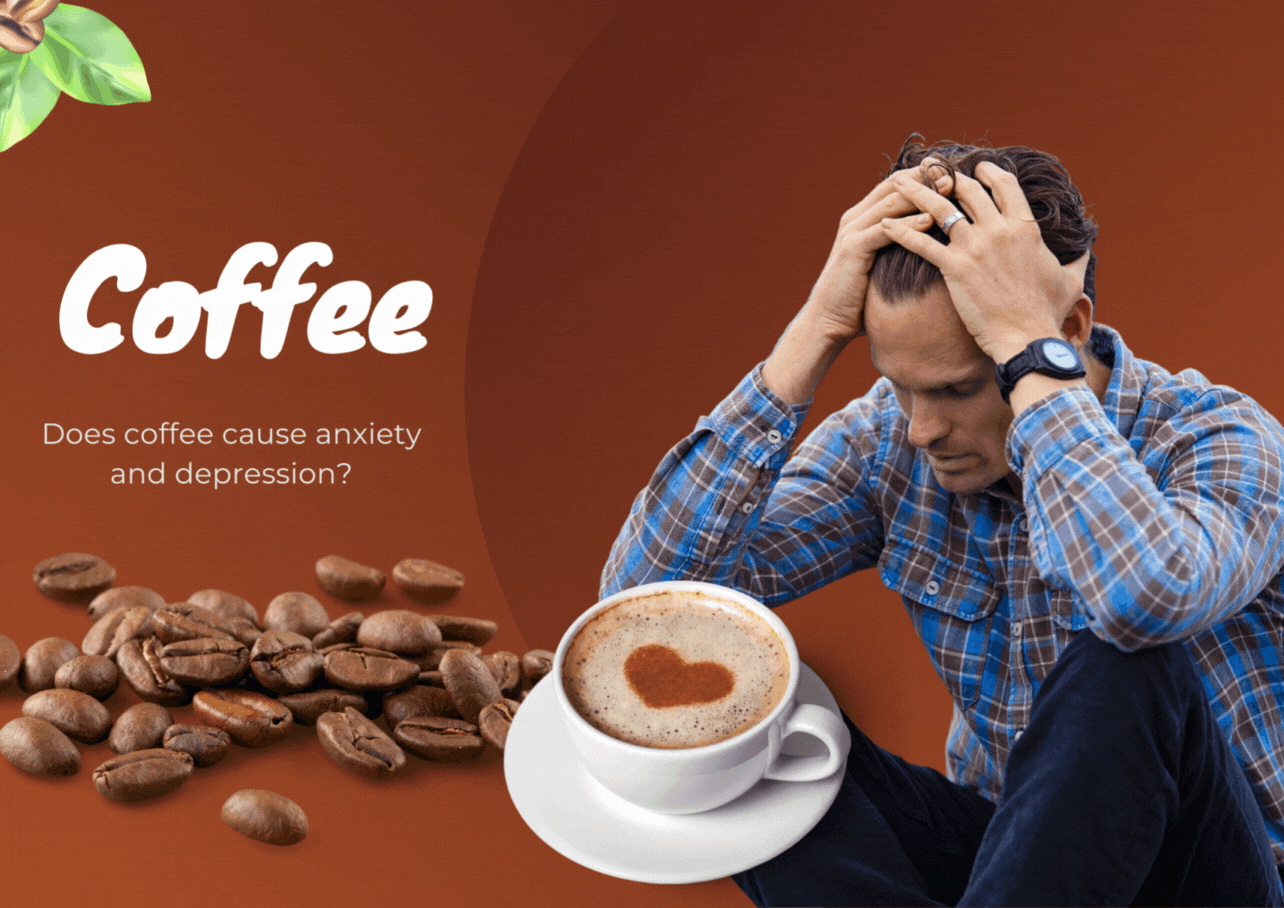
Can coffee make you anxious? Many people swear by the caffeine in their morning cup to perk them up and fend off the blues, but it can lead to unpleasant side effects like anxiety for some people. According to recent studies, caffeine may be linked to anxiety disorders, including generalized anxiety disorder (GAD), panic disorder, and obsessive-compulsive disorder (OCD).
Can coffee make you anxious? It’s a question that has been asked time and time again, and it seems like there is no definitive answer. Some people say drinking coffee can increase anxiety, while others claim it can help calm down nerves. But what does the science say?
Table of Contents
Can Coffee Make You Anxious? Why it happens, and how to fix it?
There is some research that suggests caffeine can increase feelings of anxiety for people who are already prone to it. However, for the majority of people, coffee does not have a significant impact on anxiety levels. In fact, many people report that coffee helps them feel more alert and focused, which can be helpful when feeling anxious. Additionally, coffee is a social drink, and spending time with friends can help reduce feelings of anxiety.
When it comes to caffeine, people have a lot of opinions. Some swear by its ability to boost them, while others say it can make them anxious. But is coffee really the root of all anxiety-related problems? There’s some evidence to suggest that it might be.
First, caffeine is a stimulant, which means that it can increase activity in the brain. This can cause anxiety in people already prone to anxiety because it worsens the condition. Caffeine can increase heart rate and blood pressure, making it one of the world’s most commonly consumed drugs.
Caffeine and Anxiety: A Dangerous Liaison Unveiled by Science
Caffeine is a stimulant found in coffee, tea, chocolate, and energy drinks. For many people, caffeine provides an energy boost and improves their mood. However, caffeine can adversely affect people with anxiety disorders, including increased anxiety and panic attacks. Researchers are still exploring why caffeine can harm people with anxiety disorders, but it is likely that the combination of caffeine’s stimulant effects and the already heightened anxiety levels of people with anxiety disorders leads to adverse outcomes. If you have an anxiety disorder and are struggling with caffeine addiction or dependency, it is essential to seek help from a mental health professional.
The Truth About Caffeine and Stress
Many people consume caffeine in the form of coffee, soda, and energy drinks without realizing that it can worsen anxiety symptoms and make it harder to cope with stress. A study by the University of Cincinnati found that consuming caffeine before a stress test made it harder for participants to regulate their emotions and caused them to feel more stressed out. The study also found that consuming caffeine increased heart rate and blood pressure levels.
Overcoming Caffeine Withdrawal
When people abruptly stop consuming caffeine, they may experience withdrawal symptoms such as headaches, fatigue, and irritability. Caffeine is a stimulant found in coffee, tea, chocolate, and some soft drinks. It is a legal drug that is considered safe when used in moderation. However, when people consume too much caffeine or abruptly stop using it, they may experience withdrawal symptoms. Symptoms usually last two to seven days and may include headaches, fatigue, irritability, difficulty concentrating, nausea, and vomiting.
How Caffeine May Fuel Anxiety?
There is evidence that caffeine consumption is associated with a higher risk of diabetes. A study published in the journal “Diabetologia” examined the data from three extensive studies involving over 340,000 people. The study found that those who consumed more than 200 mg of caffeine per day were twice as likely to develop diabetes as those who consumed less than 50 mg per day.
Conclusion:
While caffeine can negatively affect people with anxiety disorders, it’s not always necessary to avoid it entirely. Caffeine is a psychoactive drug found in coffee, tea, soda, and chocolate. For most people, caffeine is a stimulant that increases alertness and energy. However, for people with anxiety disorders, caffeine can have adverse effects. Caffeine can worsen anxiety symptoms and increase the risk of panic attacks. Despite this, caffeine is not always bad for people with anxiety disorders. In small doses, caffeine can improve mood and cognitive function. It can also help relieve tension, headaches, and fatigue.